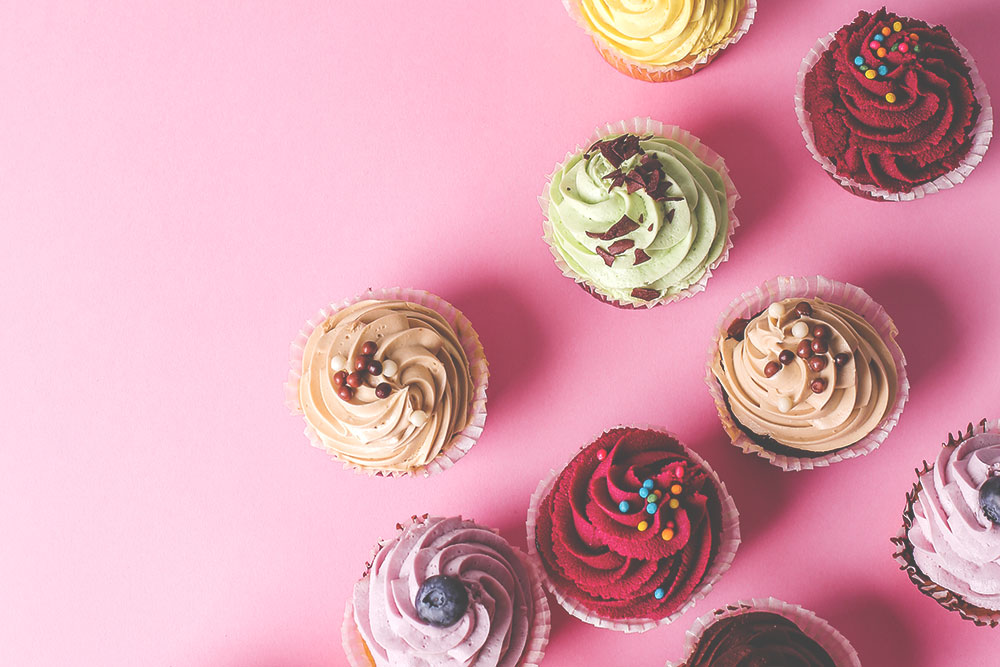Does sugar really deserve to be in the same category as drugs, or has it been blown out of proportion?
BY: LAURA THOMAS, PhD, RNutr
We’ve all seen the posts and articles that tell you all the terrible things that happen when your body processes sugar. Terrifying things like ‘insulin spike’, ‘sugar crashes’, imbalanced hormones, and weird stuff about your liver, blood pressure, and other bodily functions.
While these are all physiological processes that can happen, we need to just calm down for a second and put things into perspective.
Our society’s tendencies to over-pathologize normal bodily functions are making them into a bigger deal than they really are. It causes a knee-jerk reaction that leads people to misinterpret the message.
Rather than being more mindful of the amount of added sugar we eat, the information is skewed as a complete elimination from our diet. This simply does not work. In fact, this kind of rigid, restrictive diet is considered disordered eating and can cause more problems than it solves.
Let’s first talk about what happens when you eat a food or meal containing added sugar.
All sugars are carbohydrates, but not all carbohydrates are sugars. We’re talking about table sugar, also known as sucrose, which is a disaccharide made up of two sugars joined together – glucose & fructose.
When sucrose reaches the small intestine, an enzyme named sucrase breaks it down into glucose & fructose. Glucose is the primary fuel of the central nervous system (brain & spinal cord), red blood cells, and muscles. It gets transported across the lining of the gut and delivered to the blood stream where it, along with the products of protein digestion (amino acids), stimulate the β-cells of the pancreas to release the hormone insulin.
Yes, you heard right, protein causes a release of insulin too.
This is a normal biological function and is essential to help your body absorb glucose. Insulin is like a key that opens the door to a cell, allowing uptake of glucose and other nutrients. It’s involved in protein synthesis, break down of essential fatty acids (like Omega fats), allowing them to be absorbed and storing any excess carbohydrates as glycogen if for any reason you’re low on fuel.
So let’s calm the hysteria and remember that our bodies have the capacity to manage the natural fluctuations associated with eating, whether it’s sugar or not. Yes, problems do happen when you overload your body with anything. That includes excess protein for all you low-carb, high-protein folks.
That brings us to the next train of thought that comes up:
What if you’re addicted to sugar and can’t stop overloading yourself?
To be clear, there’s not enough evidence to claim that sugar is an addictive substance. In fact, the idea that any food can be addictive is highly contested in the scientific literature. The rhetoric in the media and popular social media accounts has likened sugar to cocaine, heroin, and tobacco. This is attributed to some people experiencing feeling out of control around certain foods, particularly really tasty foods containing sugar, fat, and salt, leading them to believe they’re addicted to those foods.
But can you really be addicted to sugar or food?
First of all, let’s define what we mean by addiction. It’s a bit complicated, but there are 2 main categories:
1. A non-substance behavioral addiction (such as gambling)
OR
2. A substance addiction (such as drugs, alcohol, or tobacco).
‘Food addiction’ falls into the latter category, with symptoms thought to be analogous to drug addiction, including loss of control, withdrawal, and cravings for ‘problem foods’.
But what does the research say? Is this is a real effect?
Studies in mice and rats show that ‘pleasure centers’ in the brain do light up when the animals eat sugar, releasing dopamine, and opioids similarly to when taking drugs. The limited number of human studies also show a similar pattern.
But remember, pleasure centers in our brains also light up when we pet kitties or puppies, listen to our favorite song, and when we see people we love. So, how does that argument stand up?
Food is supposed to be rewarding, and research shows that abstinence through diets or cutting out food groups actually increases the reward value of foods to make you want more. Simply put, food is supposed to taste good, otherwise we’d have no incentive to eat it.
Recognize the food addiction rhetoric is pathologizing something that’s normal and healthy, and keep your food choices mindfully balanced.
You’ll be more sane for it.
Laura Thomas, PhD, RNutr is an AfN-Registered Nutritionist based in London, UK. Specializing in Intuitive Eating and non-diet approaches, Laura helps individuals cut through the diet trend noise to make meaningful changes to their diet and lifestyle through her client work and her weekly podcast ‘Don’t Salt My Game’. Learn more and connect with Laura.

